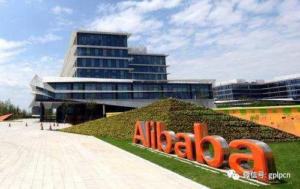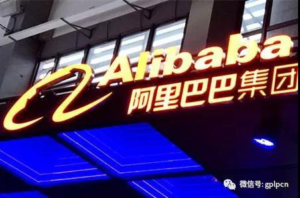Author:Helen Wang
Publisor:GPLP
In the investment industry, there is a type of investment called to AT.
This has been a mainstream channel for the exit of major investment institutions in the industry in the past few years.
Recently, according to the investment data disclosed by Alibaba, as of July 20, 2018, Alibaba has carried out 52 group-level investment events with a total of more than 100 billion yuan, which was approaching the total investment of the whole year last year. Among them, the well-received investment includes 9.5 billion dollars’ acquisitions of Eleme, 1.38 billion dollars in strategic investment in ZTO Express, and 15 billion yuan in strategic shares in Focus Media to obtain more online and offline traffic through investment.
This has surpassed any typical investment institution.
Alibaba’s self-confidence comes from its abundant cash flow.
On August 23, 2018, Alibaba released Q1 financial report for FY 2019. Its operating income was 80.9 billion yuan, up 61% year-on-year; core e-commerce business income was 69.188 billion yuan, up 61% year-on-year; free cash flow was 26.3 billion yuan. Annual monthly active users increased by 24 million compared with the previous year…
Secondly, Alibaba Cloud Business and its entertainment also generated nearly 10 billion in revenues, reaching 4.69 billion and 5.97 billion respectively. Among them, Alibaba Cloud’s growth rate reached 93%, and the growth rate of Dawen Entertainment was 46%. Innovation and other business revenues were 1.059 billion yuan, a year-on-year increase of 64%.
However, what style does Alibaba invest in?
GPLP today will stretch out the portrayal of Alibaba investment.
Alibaba’s investment logic: involves around strategy
One of the typical examples is Alibaba investing in Ele.me.

In April 2018, Alibaba acquired Ele.me at $9.5 billion. Zhang Xuhao’s identity changed from a the founder of Ele.me to the company chairman. At the same time, Alibaba issued another personnel appointment news, Zhang Xuhao will join Alibaba, as Zhang Yong ’s special advisor on new retail strategy.
This is an enlightening news to shareholders of Ele.me.
“It is said that even the most well-known investment giants are delighted with Alibaba’s boldness. They have not seen so much cash before.” An insider familiar with the acquisition told GPLP that Alibaba Investment is like the gospel of the investment industry, the benefits they brought to the organization far exceeding any of their investments.
Of course, similar incidents were also in the ofo investment incident, in which Alibaba bought all the stake in ofo from GSR ventures.
Therefore, there is a saying in the investment industry that investment must be close to the AT, and even investment institutions specialize in investing in the resignation of such companies, because the waterfront pavilion gets themoonlight first.
Return that Alibaba Investment brings to investment institutions and entrepreneurs is obvious. However, if someone says that Alibaba invests blindly, and it is easy to get Alibaba’s investment, they couldn’t be more wrong.
The goal of Ali Investment is quite clear.
“Alibaba investment is divided into 2 categories: one is a strong coupling investment based on Alibaba’s entity business, which enhances the group’s business and improves efficiency through acquisition and investment, the other is seeking-path investment. The current business relationship is not strong, but we will also invest in companies that we think would cast an impact on the future of the industry, such as AI.” Alibaba investment director Xie Ying once said in an interview with the media.
Unlike Tencent’s transformation of pure financial investment, today, as a company, Alibaba’s investment is still around its main business. They have opened an investment path that is in line with corporate development.
In terms of investment logic, in the early years, Alibaba Investment Department started around e-commerce, and the investment targets were chosen mainly in consideration the synergy with Alibaba E-commerce. In a word, the invested company can provide value to e-commerce. Alibaba prefers investment in companies that are related to its main business. One of the reasons Alibaba investing in media is for the marketing of Alibaba.
Later, along with the gradual expansion of Alibaba’s business, Alibaba Investment has evolved into its current logic on the basis of the past ten years – starting with the e-commerce platform, through its initial core business model B2BC, that is, through the activated B-side to activate the C-end, accumulating user size and transaction traffic. Then, based on the e-commerce transaction link, the financial and payment gaps are opened, and the logistics industry is laid out based on the e-commerce distribution link, and the layout is further deepened. Then, Alibaba further utilized the massive trading information to take root in the more basic layer of big data and cloud computing technology to build a more general-purpose underlying application technology system.
Later, in 2017 and 2018, considering traffic, Alibaba also began to operate in the mobile side and socially. Later, it acquired AMAP, invested in the Cainiao Network Technology, invested in Yintai, Haier, Sina Weibo, and finally invested in Ele.me. Laying out of the mobile terminal while improving the e-commerce ecology, while at the same time serving the e-commerce and increasing its social portal, this is the investment logic of Alibaba’s shareholding in Sina Weibo, AMAP, and Ele.me.
Moreover, in the details of the specific investment process, Alibaba Investment is different from the slightly standardized survey and discussion methods of other companies. After “opening up your mind to chat” before diving into deep communication, and finally carry out professional details. Drawing the painful lessons of previous investments faliure, Alibaba will give priority to its “independent viability” when selecting strategic investment targets – even if it cannot be integrated into the group, it can develop independently with a not-bad performance.
All in all, Alibaba Investment basically focuses on the established strategy and invests in the basic logic of the Alibaba ecology.
The direction of Alibaba investment: investing into the future

Although Alibaba has sufficient cash flow, it is very difficult for many investment institutions to raise funds in 2018.
There is likewise a story behind the scene.
That’s because the fundamentals of the investment industry have changed from head to toe.
First of all, in 2018, the numbers of entrepreneurs fell sharply, and many well-known investment institutions began their own incubation projects. Under this background, there are not many M&A targets for Alibaba which is characterized by M&A and post-investment. This is an objective reason.
Another thing is that after many M&As, many so-called legendary projects were not that magical.
Finally, that is, competitors are also changing. Today’s Tencent investment has been upgrading and transformed from a previous strategic investment to a financial investment, and even began to raise funds.
In this case, Alibaba investment has to change, that is, the investment is enhanced, but the direction and target are slightly adjusted:
Changes are mainly shown as:
In 2017, Alibaba had a total of 45 investments, mainly focusing on new retail, e-commerce, logistics, artificial intelligence, and corporate services. Among them, ,post E-round, strategic investment, PIPE (private equity investment listed company shares) investment projects accounted for 59%, far higher than Tencent’s 25%. At the same time, among all investment in 2017, the ratio of the main investment and the lead investment was as high as 78%, and every shot was a big deal. The investment industry’s evaluation of Alibaba is “once investing, investing it amazingly”.
In 2018, according to Alibaba Financial News, Alibaba continued to invest heavily in a series of new business to expand its ecosystem. These businesses include physical retail stores, cloud computing, digital media, take-away services, etc. Alibaba Investment continues to lay out in the areas of new retail, globalization, technology, etc.
According to the latest report of investment bank Stifel, they believe that Alibaba is continuing to build a global business ecosystem, and investment in new retail is expanding the company’s potential market. Other business, including logistics and local services, will help the company enhance the experience of both users and merchants.
“Control your life instead of letting others take hold of your destiny.”
In the face of the competition that has come, Alibaba Investment has chosen to actively embrace the future and increase investment. At the same time, it has taken the initiative in the contemporary retail, AI, globalization and logistics.
Continue its entrepreneurship, Alibaba has won the recognition of the capital market.